This is the year to kick the pesky imposter syndrome to the curb and move forward on your journey towards reaching your full potential. We hope the stories and lessons below will help you overcome self-doubt.
Ricki Downing
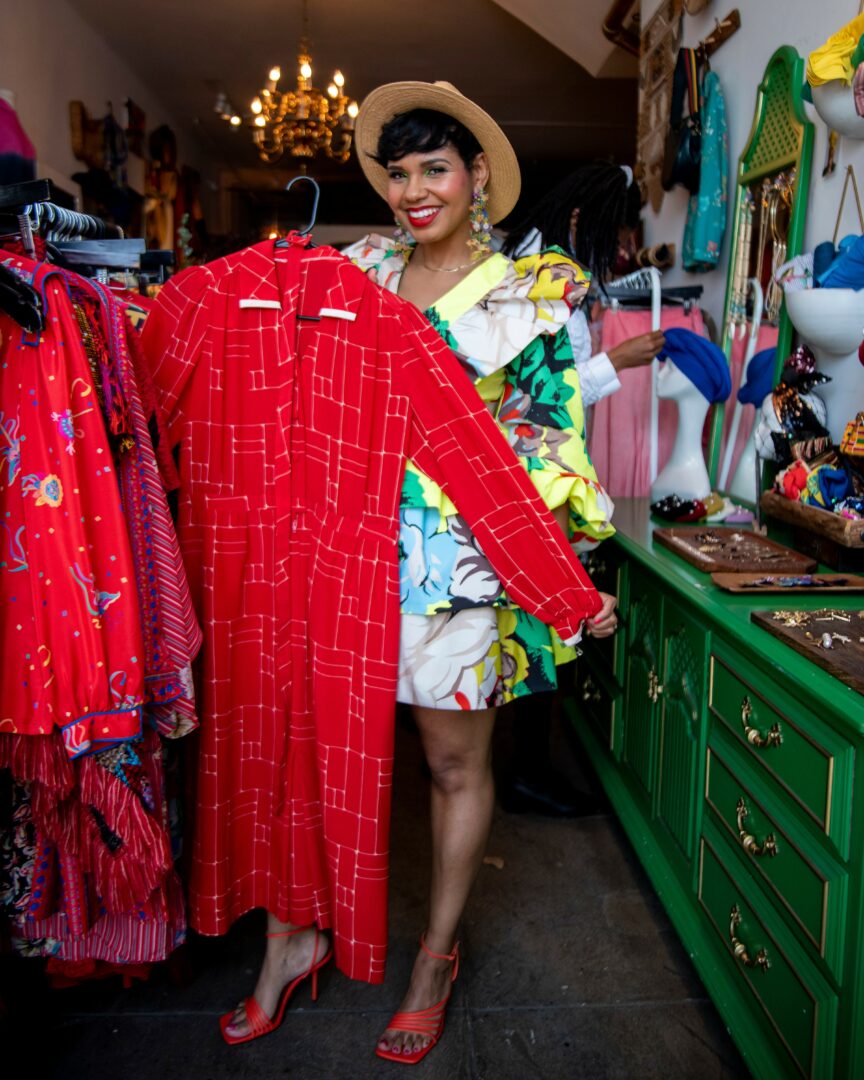
I actually didn’t know about imposter syndrome until 2020, when I decided to hire a Life Coach to help me get out of my own way, and pursue my passions. I told my coach that I’ve always loved the art of styling and fashion in general, but I didn’t think I belonged to that world. I didn’t think I belonged, because I didn’t go to school to learn what I know about styling, it’s just innately inside of me. That’s when “Imposter Syndrome” was brought to my attention, as that’s what my coach said I was keeping me from going after my passion of working in fashion. Read More>>
Shamant Bagrecha

Art always comes from inspiration, whether it’s something you saw, an experience you had, or just an idea you want to bring to life in your own way. That perspective always made sense to me and helped me understand that even if my work is inspired by something, it’s still mine.
I’ve also noticed that the stuff I make tends to feel different from what’s out there. People have told me that when they see my work, they immediately know it’s mine. That made me realize that, even though I’m influenced by things around me, my art still has its own unique identity. Read More>>
C.M. Leyva

I think most authors can relate to the dreaded imposter syndrome – something I’m experiencing now as I work through edits for the sequel to my debut novel. What I’ve realized is that imposter syndrome is like an elevator of insecurities. When I first started writing, it was pure inspiration and creativity as I crafted a story for myself. Imposter syndrome reared its head for the first time when I decided to show my writing to others. Was it good? Would they judge me for what I wrote? I guess that was the first floor of this metaphorical elevator. I wrote through middle school, high school, and college, experimenting with genres and storytelling techniques. Read More>>
Yana Korneva
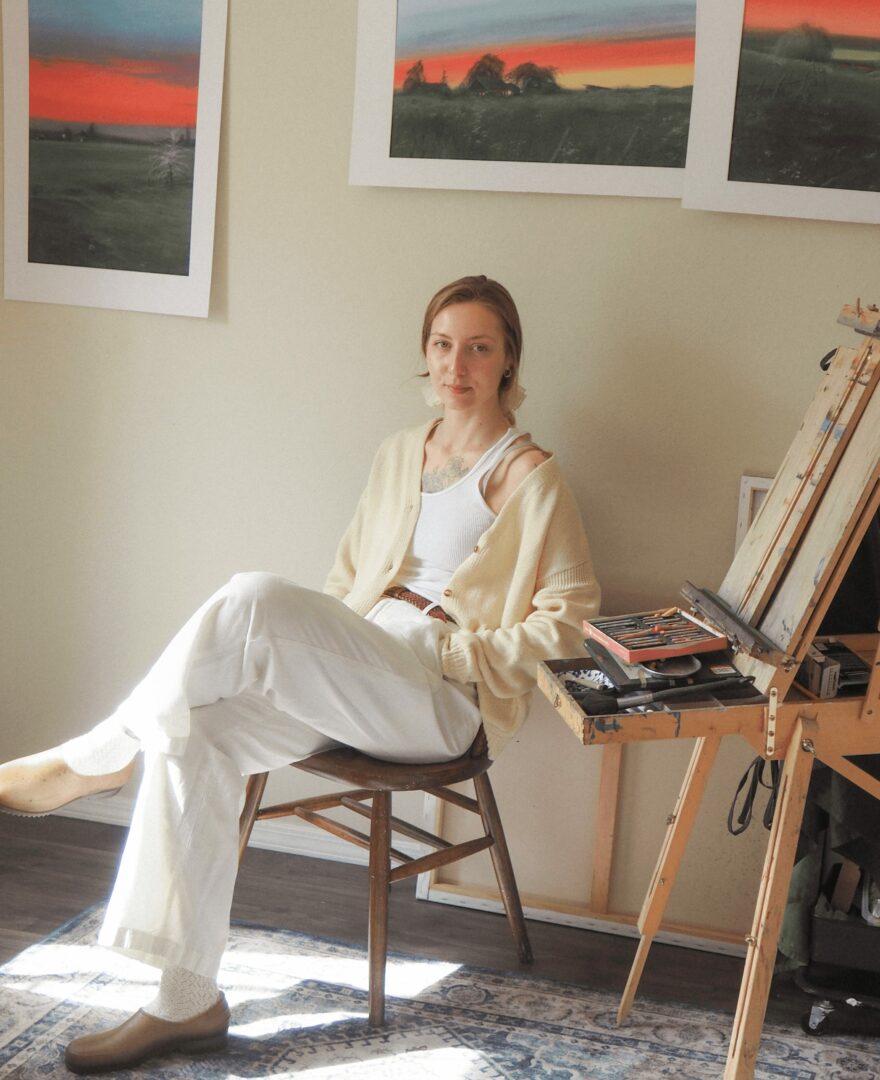
Impostor syndrome follows me constantly. I used to let it get close, but over time, I’ve started pushing away all those comparison-driven thoughts. I always talk to myself and give myself compliments — it helps me stay focused and not get stuck on unimportant things. Read More>>
Miguel Negron

What an excellent question! Ever since childhood, upon moving to the U.S. I recall feeling very inadequate, shy, introverted and apprehensive about trying many things including sports, presentations, making new friends, amongst other activities. Too often I’d put others first because I didn’t consider myself worthy. As an adult, I realize others around me noticed my potential but I struggled to see it. Even my E.S.O.L. Teacher in school insisted I’d get further upon exiting the program although I asked to remain in it as it was a comfort zone for me. Read More>>
Landon Gagner

In my eyes – dealing with imposter syndrome is an inevitable reality when you make the bold choice to pursue a dream, I think of it as simply the gap between the version of you who has achieved your highest dream, and the current version of you striving towards it, staring you in the face. It isn’t “fake” – it’s the cold truth that there is a lot of tedious, slow work required to incubate into the artist capable of achieving your highest vision for your life. To overcome this uncomfortable feeling – the feeling of not yet having the skills I needed – I leaned into craft. Read More>>
Sherry Bright

I’ve had a lot of success in my life, mostly from working hard, communicating well, and just being a decent human. So you’d think I’d be able to dodge Imposter Syndrome when it comes to comedy. Nope – still got it!
Honestly, I think that comedy makes Imposter Syndrome especially hard to get out of. Here’s why:
Problem: Comedy is a team sport.
Sure, you can write jokes alone at midnight, but the best stuff usually happens when you’re bouncing ideas with funny people. Talking it out speeds things up. That’s great—but it can also make me wonder if I’m only funny with help. Read More>>
Natalie Thomas

I realized that impostor syndrome is made up. It’s the patriarchal system used to keep women and minorities from realizing their full potential. When a seed of doubt is implanted, it can take root. My value is in how I live, what I share, and how I react to the forces trying to keep me down. Read More>>
Trent Sherrill
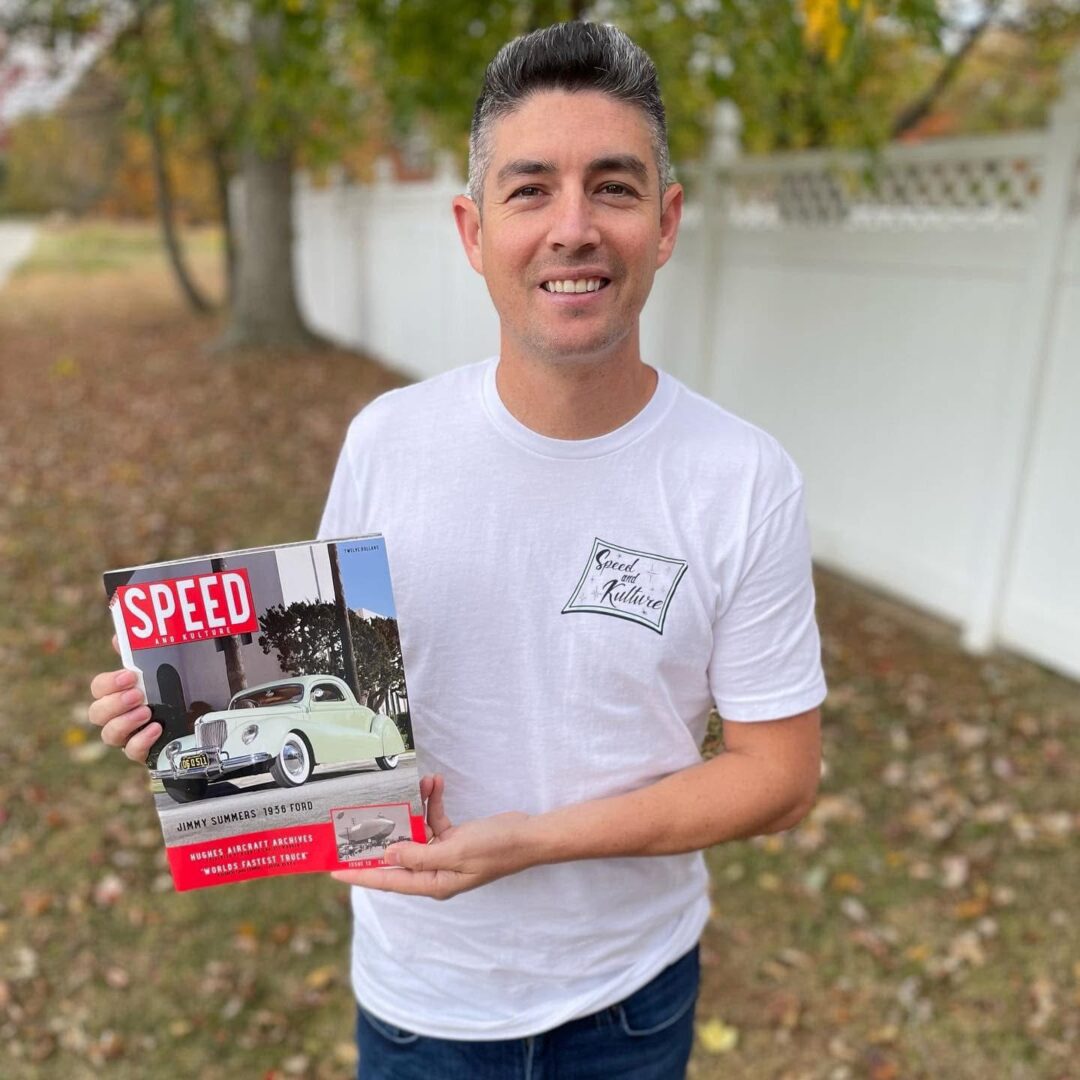
Imposter Syndrome is such a good term to bring up involving my career. Coming from a small town (Porterville,CA) it was an area that felt like if you didn’t work at the prison, you’d be in it. your work ethic – life choices would determine what side of the bars you’d to be on. Where the imposter syndrome creeped into play was soon as I began getting bigger gigs and traveling / leaving the country. You start thinking how did i end up here? im not suppose to be in this position, these places and people im working with, i should only be seeing these scenarios from a internet search not actually working with them in person. Read More>>
Lucas Jensen

Its a constant struggle to be honest. I’m incredibly blessed to have the opportunities that I do, but it seems like at some point, every day, I catch myself thinking “they are going to find out I’m really not that good”. After a few minutes of fear, I think of where I started, how far I’ve come, and that I know I’m nowhere near the best, but I damn sure will work harder get closer every day. Read More>>
Andrew Divelbiss
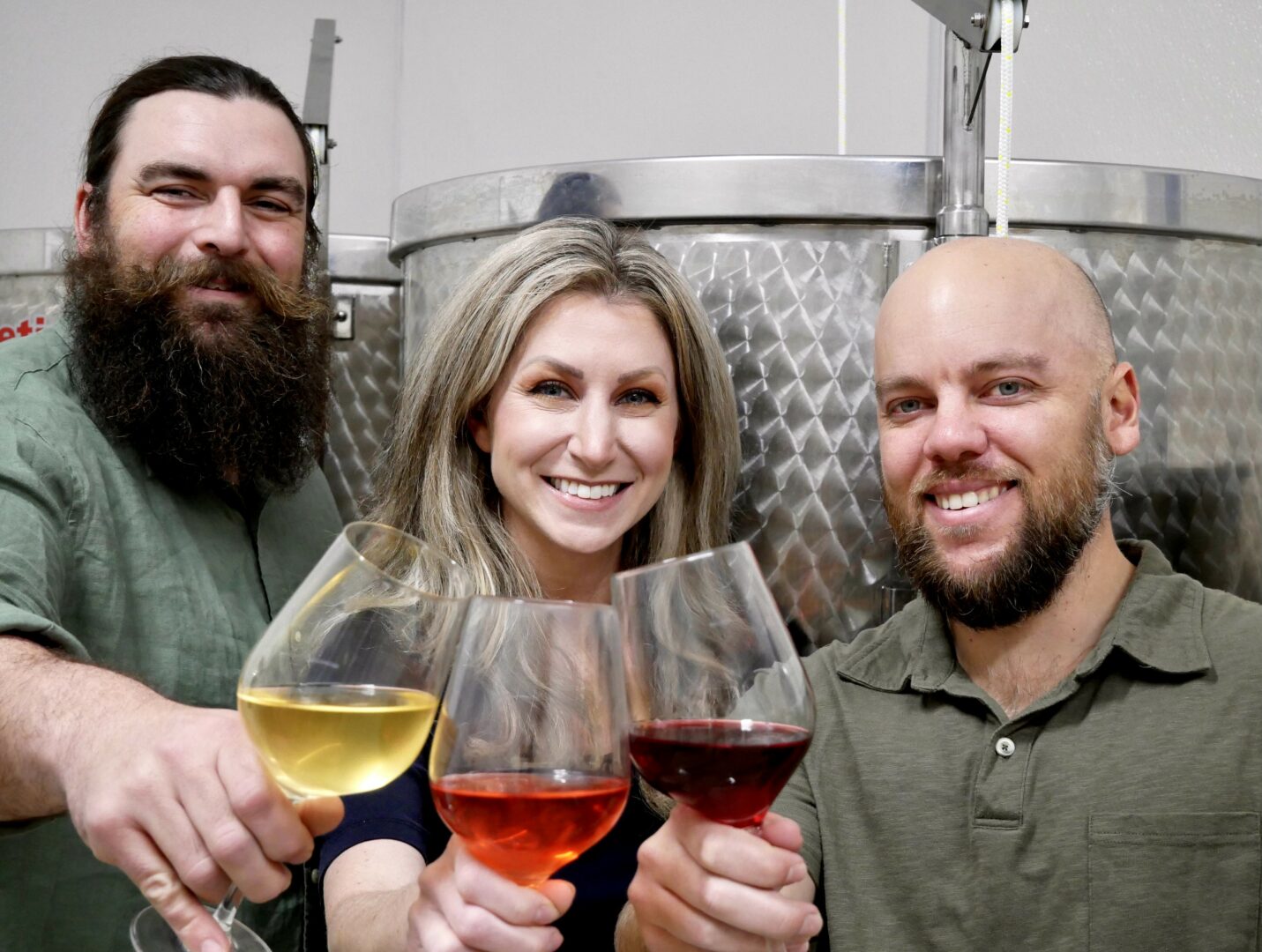
Imposter syndrome is definitely something I’ve felt stepping into this world, especially surrounded by people with years of experience and deep knowledge. What helps me push through is staying focused on the craft and my reasons for getting into cider making in the first place—my love for fermentation, working with apples, and creating something people enjoy. I remind myself that learning is part of the process, and everyone starts somewhere. Read More>>
Georgia Evans

I’ve approached both directing and designing for theatre with a “fake it till you make it” mentality. Especially as a costume designer, I’ve had a lot of impostor syndrome to overcome. Despite being a designer since high school, I’ve never considered myself “fashionable.” When jumping into the industry professionally, I felt a lot of insecurity about what I wore to work every day. Not to mention the life of a Costume Production Assistant isn’t usually all that glamorous — much of my day-to-day includes lifting heavy boxes and bags of clothes, commuting around midtown Manhattan with them on the subway and in Ubers, lots and lots of stairs, and trekking west to La Duca. Read More>>
Grant Houston

In my experience in classical music, the challenge of “overcoming” imposter syndrome is more of a cycle than a one-time achievement! For me, it goes like this: an email comes in, I get excited by the gig on offer, and I sort of size myself up against the other players involved. Increasingly, I’ve been lucky to get opportunities to work alongside artists I once only hoped to study with, but in general, I’m typically the youngest, greenest player on call. Within minutes, I’ll ask myself at least a few “imposter” questions. Why am I on this gig? Did someone hear a recording of mine that I won’t live up to in live performance? Which of my talented friends should have been asked instead of me? But there are a few ideas that help me get mentally back on my feet and stay sane. Read More>>
EbonyJanice Moore

I was having a conversation with a Life coach years ago and telling them that the basic conversations about my imposter syndrome that we were having wasn’t working and I needed something deeper. He told me to close my eyes and envision myself standing in the center of my honorable ancestors in the ancestral realm. He added that in the ancestral realm, all of my ancestors are 10ft tall+ so I had to look up to them. Read More>>
Michaela Cleveland
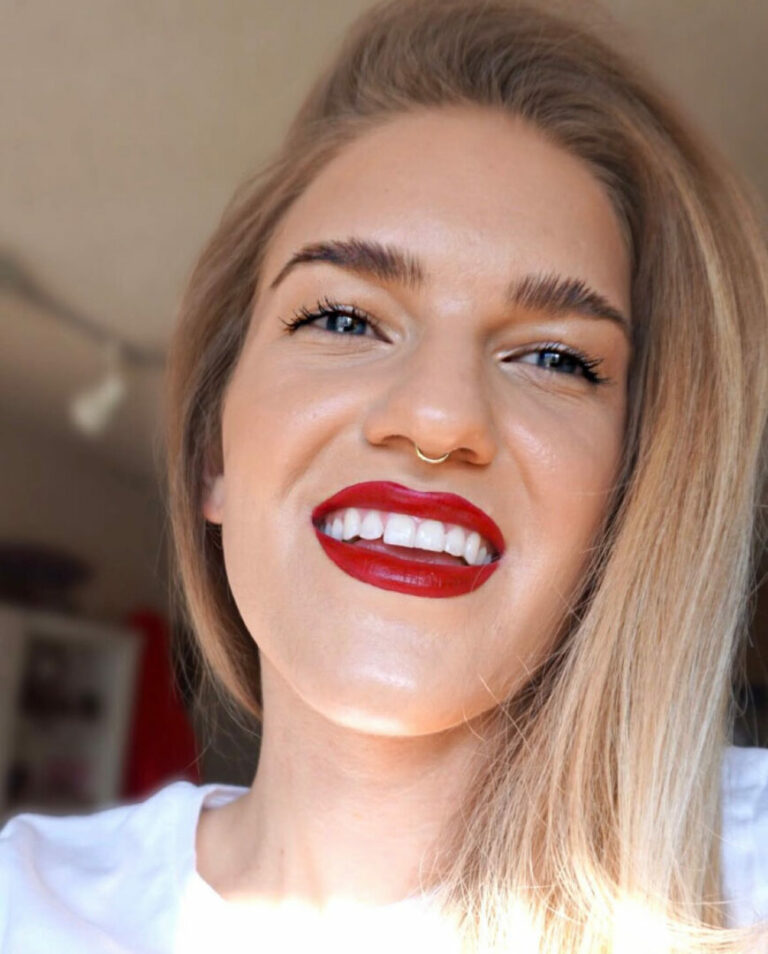
If you’re lucky enough – you don’t. I know we’re always trying to solve the riddle of how to banish that pesky feeling of imposter syndrome, but I’d like to offer a different perspective. I’d rather think that the human experience is meant for growing and stretching your knowledge and abilities, so you’re constantly teetering the line of comfort and “fake it ‘til you make it”. Read More>>
John Waller

For most of my academic life, imposter syndrome wasn’t something I really struggled with. In high school, my B.S. in Biology, my M.S. in Biology, and now as I work through my MBA, I’ve always found comfort in the structure of school. There were clear benchmarks—classes to complete, grades to earn, and tangible milestones that made progress easy to track. I always had a defined goal and knew that if I followed the steps, I’d get there. Read More>>










